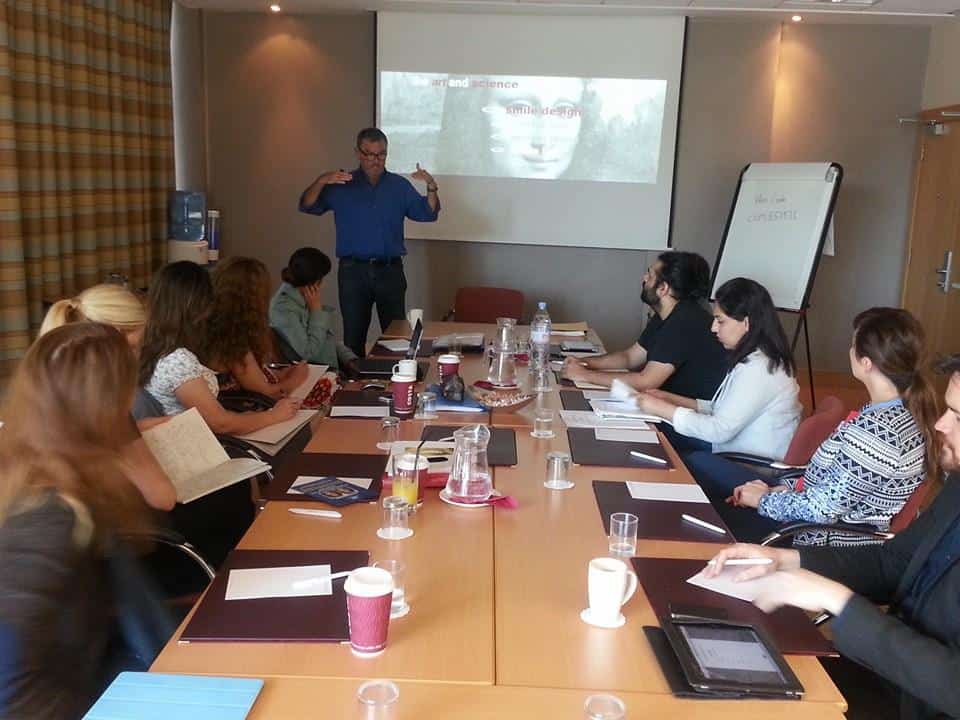This month we have the huge pleasure to have a guest article from the internationally renowned, Professor Paul Tipton on his career, future predictions and career advice.
I chose dentistry as a career so that I could achieve a degree of work life balance and continue to pursue my love of cricket. Between 1974 and 1978 I played professional cricket for Lancashire and then semi-professional for Cheshire until 1984, when I bought my first private practice in Central Manchester. In 1984, I also embarked upon my post grad education journey as a result of listening to Mike Wise’s talk about occlusion. It was at this point that I realised I didn’t know much of what he was talking about and there was a lot more that I needed to learn and that is exactly what I did.
A common problem I observe amongst dentists is that when they are presented with a big case, they don’t know where to begin. My advice is to break the treatment plan down, keep it simple, look at the mouth as a whole and do the bits that lie within your capabilities. If you don’t feel confident or loathe doing a particular part of the treatment plan, refer it out. There are many courses available that teach function, occlusion, and aesthetics; which are the foundations for you to build on. With this you will be able to gain an understanding of how you can deliver high quality dentistry and bring a treatment plan together. We at Tipton Training know this because we have been delivering these courses now for 25 years and the results are more than satisfying.
From personal experience I can safely say that if you’re trying to do everything, it’s difficult to handle and execute to the highest standard.
I recommend that you specialise in an area of your choice and strive for a Master’s Degree. Richard Ibbotson and Derrick Setchell were a big influence on me and I really enjoyed studying for my Masters at Eastman with their guidance. They treated us all as equals and we had some very interesting conversations. For me I felt this was the biggest turning point in my career and it was the first time I was able to join up all of the dots, especially occlusion, treatment planning and lab techniques.
The ideal route to take would be to find your niche in the industry and only do the bits you enjoy. Dedicate your time to developing your skills in these areas and understand your limitations. This will have a good impact your work life balance. If you find yourself in a working environment you don’t enjoy then it can be really tough on your overall wellbeing and your life outside of work. Taking on too much work that sits on the edge of your capabilities leads to stress, unhappiness and potential complications. When you find your niche and you enjoy delivering a high standard of dentistry every day you can only improve your expertise.
So, what are my predictions for the future of dentistry?
With the way things are going, it seems to me that the undergraduate dental training programme may be cut to three years and will be based on the cheaper therapist programme. For those dentists that do want to do more advanced work, such as veneers and crowns, ortho, endo and perio, the training cost will need to come from their own pockets. The decrease in the percentage that associates can expect to get is already being driven down by the corporates and I would expect it to continue reducing until it gets to 25-30% which only adds to the existing stress.
It’s going to be a very different dental world out there.
I would say that we are at a place where being proactive is a necessity. Get yourself skilled now and position yourself into private practice, develop your own website even if you are an associate and get yourself a portfolio of well photographed work so that you are able to get that job in the private practice when it comes available. Don’t let a lack of training and a poor portfolio stand in your way. Do something about it and make it work for you.
Being proactive will only help you. There is no downside. By getting on with it, you will be giving yourself that boost that most people fail to get. Having secured a job in a private practice you will be able to maintain a real balance. You will also be able to enjoy your other passions the way I do with my cricket.
Professor Paul Tipton, one of the UK’s top influential dentists who has worked in private practice for over 30 years and is the founder of Tipton Training Institute based in central Manchester. He has been teaching for over 25 years across the globe with over 3000 delegates attending his courses to improve their skills and increase their incomes. Prof Tipton is also on the Board of Directors for the BACD and BAAD and president of BARD.


